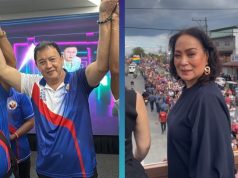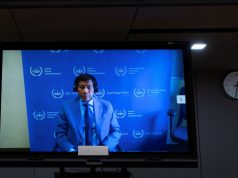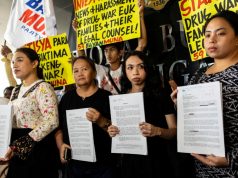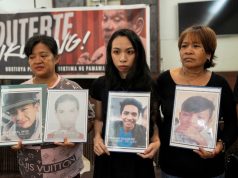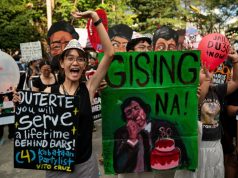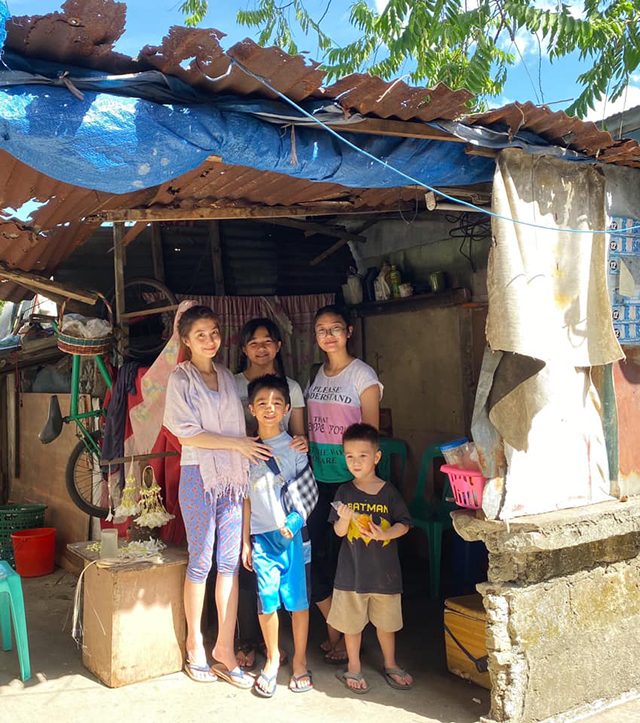
A video showing Filipino singer Donnalyn Bartolome switching lives with a poor family was not completely welcomed by those who point out how people’s poverty can be taken advantage of for public relations.
Bartolome, popular for her songs “Kakaibabe” (2014) and “HBD” (2019), shared a video on January 13 wherein she and her siblings exchanged lives with a family from an impoverished area for 24 hours.
The “life swap” happened last Christmas, Bartolome said in a post. The video on her YouTube channel now has more 2 million views.
“Sorry late upload! I edited this for 4 days. Please make your kids watch. Full of life lessons,” the online personality said.
In another post, she said she made this video to teach her younger brothers and sisters some morals.
“My siblings are kind of spoiled so I decided to teach them an important lesson: to be appreciative,” Bartolome said.
24H LIFE SWAP WEALTHY FAMILY POOR FAMILY
WEALTHY FAMILY AND POOR FAMILY 24Hours LIFE SWAP My siblings are kind of spoiled so I decided to teach them an important lesson: to be appreciative.Thank you Oomph TV for helping me with this vlog
Posted by Donnalyn Bartolome on Tuesday, January 14, 2020
While her fans on Facebook and YouTube praised her for the initiative, local Twitter disapproved with her way of values education.
It seemed like the other family was merely used as an online challenge, Twitter user @Mrcxism pointed out, even if her intentions were initially good.
“I know her intention is to show her audience how hard life is for a poor family. However, her means doesn’t justify her ends, because she’s using the family’s economic status as some sort of social media ‘challenge,” the user said.
I know her intention is to show her audience how hard life is for a poor family.
However, her means doesn't justify her ends, because she's using the family's economic status as some sort of social media "challenge". It's distasteful, pretentious and complete ignorance. https://t.co/Ppqb9XO8YW
— Mar(x)c (@Mrcxism) January 19, 2020
What she did was glorifying resilience of the poor, another user said, rather than her making an effort to uplift the family’s living conditions.
“It glorifies the resilience among the poor. What we need is to empathize and create a society that changes their socioeconomic condition and not one that ignores it and says ‘wow they work so hard,” Twitter user @SiomaiMilktea said.
It glorifies the resilience amongst the poor. What we need is to empathize and create a society that changes their socioeconomic condition and not one that ignores it and says "wow they work so hard".
— Shotaro (@SiomaiMilktea) January 18, 2020
He also cited that the Bartolome family’s wearing clothes viewed as “poor” and doing the poor family’s daily routine as an unfair representation of their struggles.
“If your goal was to teach your siblings to be less spoiled, maybe not saying yes all the time is the easiest solution? I mean you were clearly able to do that in the video when you swapped lives, why can’t you do it normally?” the user said.
As of publication, Bartolome has yet to issue a statement or response to the criticisms.
State of poverty
In May last year, President Rodrigo Duterte signed the Magna Carta for the Poor which aims to make government services more accessible to poor Filipinos and to meet their following rights:
- Right to adequate food
- Right to decent work
- Right to relevant and quality education
- Right to adequate hosing
- Right to the highest attainable standard of health
Poverty incidence in the country is 16.6% or 17.6 million Filipinos in 2018.




